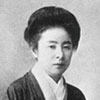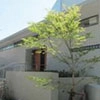言語文化教育研究センター 専任講師
バリース キンセラ(ばりーす きんせら)
Valies Kinsella
| 専門分野?専攻 | 人文?社会 / 英語学 / Applied Linguistics 人文?社会 / 外国語教育 / 人文?社会 / 芸術実践論 / |
|---|---|
| 個人ホームページ | https://researchmap.jp/7000007878 |
| 教育研究情報 | 研究者情報データベースへのリンク |
最近の研究テーマ等
As a university teacher-researcher, my research interests are deeply connected to enhancing classroom practices and student learning outcomes. One of my primary areas of focus is formative speaking assessment in the classroom. I am particularly interested in how ongoing, formative assessments can provide valuable feedback to students to help improve their speaking skills in real-time. By focusing on processes rather than final outcomes, students can develop greater confidence and identify areas for improvement. My research aims to investigate effective strategies for incorporating formative assessments into speaking activities, enhancing both teacher-student interaction and the overall learning experience.
Another key interest is material development. I believe that tailored, context-sensitive materials can significantly impact students' language acquisition. My research involves exploring how to design and adapt materials that engage students in meaningful language use while being relevant to their cultural and linguistic backgrounds. Through this, I aim to develop resources that both support and challenge students in their language learning journeys.
I am also keen on exploring the use of film in the EFL classroom through Project-Based Learning (PBL). This approach empowers students by connecting them to real-world tasks and encouraging collaborative learning. By showcasing their work through community events or presentations, students can experience a sense of ownership and accomplishment, further boosting their language learning motivation.
Additionally, my research delves into student confidence and fluency in speaking. I am interested in examining how various classroom strategies can foster a positive classroom environment, leading to increased confidence in speaking activities, which in turn supports fluency development.
Lastly, task-based language teaching (TBLT) in universities in Japan is a key area of investigation. I am interested in exploring how TBLT can be applied effectively in Japanese higher education settings, helping students engage in authentic language use and develop critical thinking skills.
主な担当授業と概要
Integrated English B
This course is designed to help students expand their knowledge of English by providing a variety of opportunities to practice speaking, listening, and reading skills in real-life contexts. Students will engage in collaborative work through pair and group activities, which include project-based learning and creating videos. These activities not only enhance language proficiency but also encourage creativity and critical thinking. By participating in these interactive tasks, students can improve their communication skills and gain more confidence in using English. The course fosters a supportive learning environment that emphasizes practical language use and student collaboration.
Effective Speaking
This course provides students with the opportunity to engage in meaningful conversations on everyday topics and themes using communicative English. The focus is on speaking and responding, encouraging students to express their thoughts clearly and confidently. In addition to verbal communication, students will also learn the importance of non-verbal cues such as body language, tone, and expression, which are essential for effective communication. Listening skills are equally emphasized, as understanding others is key to successful exchanges. Through a variety of interactive activities, students will practice making both short reactions and long responses, building their speaking and listening fluency in real-life contexts.
趣味?特技
As a teacher-researcher, I bring a unique perspective to my work, shaped by my multilingual background. Fluent in several languages, I understand the complexities of communication and the cultural nuances that influence language learning. Beyond the classroom, my passion for filmmaking allows me to integrate creative and visual storytelling into my teaching practices, helping students connect with language in dynamic ways. Outside of work, I enjoy exploring different cultures through international travel, discovering new cuisines on foodie trips, and attending classic and rock concerts. Additionally, I am an avid participant in tabletop role-playing games, where storytelling and creativity thrive.
受験生へのメッセージ
English is more than just a language; it’s a powerful tool for sharing your thoughts and connecting with others worldwide. A wise man once said, “If you talk to a man in a language he understands, that goes to his head. If you talk to him in his language, that goes to his heart.” Embrace every opportunity to practice and improve your English, whether it’s through everyday activities or hobbies. For example, singing English songs at karaoke is not only fun but also a great way to practice pronunciation, rhythm, and vocabulary. As Yoda wisely stated in the film The Empire Strikes Back, “Do, or do not. There is no try.” Don’t be afraid to speak up in class! Every conversation is an opportunity to practice, learn, and build confidence. It’s important to remember that studying a language is always a team effort. You’ll learn from your classmates as much as they learn from you. As C.S. Lewis said, “We are what we believe we are.” Believe in your ability to improve and grow. Every word you speak, every phrase you practice, brings you closer to fluency. Keep pushing forward, embrace the learning process, and remember: “The only limit to our realization of tomorrow is our doubts of today.” (Franklin D. Roosevelt)








